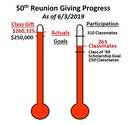|

Richard Ely, a College of Arts & Sciences instructor in psychology and a leading authority on the acquisition of language in children, died January 7 after a brief illness. He was 63.
Ely (SON’79) was an extraordinarily popular teacher of undergraduates and a beloved mentor to scores of BU students.
“Whether he was lecturing to a class of 200 students or supervising the research of a single individual, he brought to bear his full effort and remarkable capacity for engaging and inspiring students,” says Michael J. Lyons, a CAS psychology professor and department chair. “We have lost a beloved colleague and an exceptional educator.”
Ely’s route to his area of expertise was decidedly unconventional. He received a BA in French from Tufts University, but spent the next decade working as a carpenter and general contractor. During that time, he also earned a BS in nursing at the BU School of Nursing. He then worked as a staff nurse and later head nurse at the Pediatric Emergency Unit at Boston City Hospital, now Boston Medical Center.
After completing a master’s in maternal and child health nursing at Boston College in 1990, Ely embarked on what would become his abiding field of interest—language and child development—earning a PhD from Tufts in 1993, the same year he joined BU’s faculty.
Colleagues were devastated on learning of Ely’s death. Joanne Hebden Palfai, psychology department director of academic affairs, recalls “the most wonderful friend and colleague anyone could imagine,” a person of “tremendous integrity.”
A similar sentiment was voiced by Ely’s former mentor and colleague Jean Berko Gleason, a CAS psychology professor emerita. “He was an immensely principled and caring man. He loved his students, and they loved him.”
Ely taught several popular courses, including Psychology of Personality: Theories and Application and Experimental Psychology: Personality, both of which he was scheduled to teach this semester.
The website www.ratemyprofessors.com reveals the strong bond between Ely and his students. Many undergraduates, reviewing his classes for the site, describe him as “amazing” and “awesome” and several note his sense of humor, as well as his command of the material.
He was renowned for his research into how young children use language to express themselves. At the time of his death, he was studying the ways that personal narratives reflect aspects of personality in children and adults. Ely had also studied the role of language play, quotations, and apologies as related to children.
“The field has lost someone who really advanced our knowledge of not just language development in young children,” says Berko Gleason, “but how language reveals their developing personalities.”
Admired for his gift for mentoring, Ely was often selected to preside over the psychology department’s convocation ceremony.
In addition to his research, teaching, and mentoring, Ely was an accomplished poet, publishing more than 20 poems in a dozen poetry journals. “His work in each of his fields was characterized by excellence and integrity,” Lyons says.
Ely is survived by his wife, Lynette Tsiang, his son, Gregory, five sisters, and a brother.
(Pulled from the Boston University web site.)
|

